Christianity and Islam: 20 Similarities
If you read closely enough you might even find some differences! Christians and Muslims combined makeup over half the people on this planet.

1. The Virgin Birth of Jesus
2. Jesus healed the blind and lepers
3. Jesus raised the dead
4. Jesus provided food from heaven
5. Jesus breathed life into things in a creative capacity
6. Jesus will return as a Just Ruler
7. Eternal Uncreated Word- the Qur’an and Jesus
8. Inspired writings- Hadith and the Bible
9. When the unlimited becomes limited
10. Jesus is called the righteous and did not sin
11. Marriage and sex
12. Afterlife
13. God sent good news or the Gospel through Jesus- listen to Jesus
14. The need for God’s mercy and forgiveness
15. God is One and also Other to humans
16. God is in control
17. Some similar moral standards
18. Your sins can be transferred to another
19. Humans must seek God
20. Satan and dark spiritual forces
Acknowledgement: I would like to thank Islamic studies scholar and lecturer Dr. Bernie Power for reviewing my work prior to publication. I would also like to thank him for his insights and the books he has written. You can find his work at www.berniepower.com.
All Bible quotations are from the English Standard Version unless noted otherwise. All quotations from the Qur’an are based on Saheeh International unless noted otherwise.
Hadith quotations are from the sources link in the quotes.
Find us on Medium.com
Or X
https://twitter.com/StreetTheologn
Or Insta:
instagram.com/streettheologianapologetics/
Christians and Muslims combined makeup over half the world’s population
Additionally, a 2017 report by Pew Research Center projects that by 2060, Muslims will be near the Christian count, with 3.0 billion Muslims (31% of the global population) and 3.1 billion Christians (32% of the global population).
In other words, by 2060 it is anticipated nearly two-thirds of the global population will be either Muslim or Christian.
Differences
There are no doubt substantial differences between these worldviews- the Trinity, the deity of Christ, salvation through Jesus’ death on the cross, the prophethood of Muhammad and the divine authorship of the Qur’an are critical areas on which the two worldviews could not disagree more.
Am I here to minimise differences?
It is crucial to note, I am in no way here to minimise differences. Two salads can have 99% of the same ingredients but if the 1% that separates the two is comprised of poison, the difference is fatal.
Similarly, the differences between Christianity and Islam are too critical to be dismissed. The differences are so fundamental that a true adherent of Christianity can't follow the Qur’an and the way of Muhammad.
Likewise, it is impossible for a true Muslim to hold the view supported throughout the Bible that Jesus is God.
Indeed, in covering some similarities, I will also point out some nuanced differences.
Why talk about similarities then?
Nonetheless, to have an open and healthy dialogue and provide a basis from which people can explore either religion, it is beneficial to outline similarities.
Islam does still contain some truth and today I will outline some truths on which we agree.
Let’s get into it.
1. The Virgin Birth of Jesus
Matthew 1:21-25 reads:
She will bear a son, and you shall call his name Jesus, for he will save his people from their sins.” 22 All this took place to fulfill what the Lord had spoken by the prophet:
23 “Behold, the virgin shall conceive and bear a son,
and they shall call his name Immanuel”
(which means, God with us). 24 When Joseph woke from sleep, he did as the angel of the Lord commanded him: he took his wife, 25 but knew her not until she had given birth to a son. And he called his name Jesus.
In Luke 1:34-35 we see this reiterated:
And Mary said to the angel, “How will this be, since I am a virgin?”
35 And the angel answered her, “The Holy Spirit will come upon you, and the power of the Most High will overshadow you; therefore the child to be born will be called holy—the Son of God.
In the Qur’an, Surah 19:17-22 retells a similar story between Gabriel and Mary:
And she took, in seclusion from them, a screen. Then We sent to her Our Angel [i.e., Gabriel], and he represented himself to her as a well-proportioned man. She said, "Indeed, I seek refuge in the Most Merciful from you, [so leave me], if you should be fearing of Allāh." He said, "I am only the messenger of your Lord to give you [news of] a pure boy [i.e., son]." She said, "How can I have a boy while no man has touched me and I have not been unchaste?" He said, "Thus [it will be]; your Lord says, 'It is easy for Me, and We will make him a sign to the people and a mercy from Us. And it is a matter [already] decreed.'" So she conceived him, and she withdrew with him to a remote place.
2. Jesus healed the blind and lepers
Surah 5:110 explains:
[The Day] when Allāh will say, "O Jesus, Son of Mary, remember My favor upon you and upon your mother when I supported you with the Pure Spirit [i.e., the angel Gabriel] and you spoke to the people in the cradle and in maturity; and [remember] when I taught you writing and wisdom and the Torah and the Gospel; and when you designed from clay [what was] like the form of a bird with My permission, then you breathed into it, and it became a bird with My permission; and you healed the blind [from birth] and the leper with My permission; and when you brought forth the dead with My permission; and when I restrained the Children of Israel from [killing] you when you came to them with clear proofs and those who disbelieved among them said, "This is not but obvious magic."
John 9:1-41, Mark 8:22-26, Matthew 9:27-31 and Luke 14:13 all refer to Jesus healing the blind.
Moreover, in Matthew 8:1-4, Mark 1:40-45, Luke 5:12-16 and 17:11-19, Jesus heals lepers.
3. Jesus raised the dead
In Surah 5:110, mentioned in point 2, Allah refers to “when you (Jesus) brought forth the dead with My permission.”
In Surah 3:49, Jesus claims, “And I cure the blind [from birth] and the leper, and I give life to the dead - by permission of Allāh.”
Luke 7:11-17, 8:4-56 and John 11:1-44 all refer to Jesus raising the dead.
4. Jesus provided food from heaven
Surah 5:112-114 recalls Jesus providing food from heaven:
[And remember] when the disciples said, "O Jesus, Son of Mary, can your Lord send down to us a table [spread with food] from the heaven?" [Jesus] said, "Fear Allāh, if you should be believers." They said, "We wish to eat from it and let our hearts be reassured and know that you have been truthful to us and be among its witnesses." Said Jesus, the son of Mary, "O Allāh, our Lord, send down to us a table [spread with food] from the heaven to be for us a festival for the first of us and the last of us and a sign from You. And provide for us, and You are the best of providers."
Matthew 14:13-21, 15:32-39, Mark 6:30-44, 8:1-9, Luke 9:10-17 and John 6:1-14 provide biblical accounts of mass feedings by Jesus.
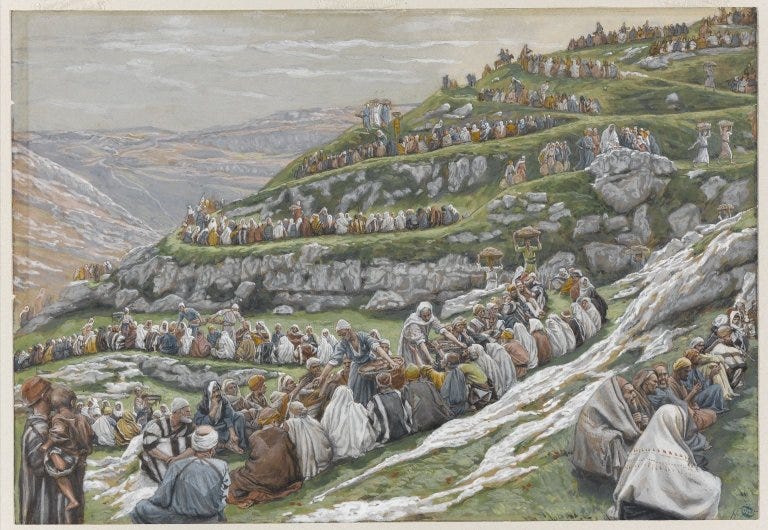
5. Jesus breathed life into things in a creative capacity
Surah 3:49 has Jesus exclaiming, “Indeed I have come to you with a sign from your Lord in that I design for you from clay [that which is] like the form of a bird, then I breathe into it and it becomes a bird by permission of Allāh.”
In Surah 5:110, Allah refers to this event in speaking to Jesus “when you designed from clay [what was] like the form of a bird with My permission, then you breathed into it, and it became a bird with My permission; and you healed the blind [from birth] and the leper with My permission.”
This account is not found in the Bible but has clear parallels in the Infancy Gospel of Thomas 2:1-2 and the Arabic Infancy Gospel 1:36.
While Christians do not take these accounts as historical, Christians hold Jesus took on a creative role.
In the Bible, it is God who breathes life into mud (Gen. 2:7).
Dr. Bernie Power explains in Jesus and Muhammad p.59, “Forming a shape out of clay and breathing into it so that it becomes a living being is the same methodology that God used when he created Adam. In fact, the verb ‘create’ khalaq used of Jesus’ action in these verses is otherwise applied only to Allah in the Qur’an. One of the 99 beautiful names of Allah is ‘the Creator’ al-khāliq (e.g. Q. 40:62).”
In Matthew 21:16, Jesus applies a passage concerning YHWH from Psalm 8:2 to Himself. Psalm 8 outlines the role of God as creator and Jesus takes a verse from this Psalm concerning God and applies it to Himself.
Colossians 1:16 alludes to all things being created through and for Jesus.
6. Jesus will return as a Just Ruler
The Bible teaches Jesus will return as Judge. Take, for example, Matthew 25:31-32:
“When the Son of Man comes in his glory, and all the angels with him, then he will sit on his glorious throne. 32 Before him will be gathered all the nations, and he will separate people one from another as a shepherd separates the sheep from the goats.
The second coming of Jesus is also mentioned in Revelation 1:7, Acts 1:11, Jude v.14-15, 1 Thessalonians 3:13, 2 Thessalonians 1:5-10, Luke 21:34-36, 2 Peter 3:8-9 and more.
Jesus' return is not found in the Qur’an, however, it is found in the Hadith.
Jesus to break crosses on His return?
In Sahih al-Bukahri 2476, Jesus returns as a just ruler destroying crosses according to Muhammad.
Allah's Messenger said, "By Him in Whose Hands my soul is, son of Mary (Jesus) will shortly descend amongst you people (Muslims) as a just ruler and will break the Cross and kill the pig and abolish the Jizya (a tax taken from the non-Muslims, who are in the protection, of the Muslim government). Then there will be abundance of money and nobody will accept charitable gifts.
7. Eternal Uncreated Word- the Qur’an and Jesus
Muslims hold the Qur’an is the eternal uncreated word of Allah.
Islam Q&A explains:
The Quran is the word of Allah, may He be Exalted, and is not created . What is meant by that is that Allah, may He be exalted, spoke the words of the Quran, which Jibril (peace be upon him) heard from Him, and brought down to the Prophet (blessings and peace of Allah be upon him), and conveyed it to him.
All of the attributes of Allah, may He be Exalted, are uncreated; they are eternal, with no beginning. The words of Allah are among these attributes, and that includes the Quran. Therefore, the scholars said that the Quran is not created, because it is the words of Allah , and that is one of His attributes.
Jesus as the uncreated Word of God
For Christians, the eternal uncreated Word of God is Jesus.
Jesus is referred to as the Word or the Logos (John 1:1-14).
This is also synonymous with the Wisdom of God, another title applied to Jesus (Luke 11:49, Matthew 23:34, 1 Cor. 1:24).
James Dunn notes the Wisdom of God was somewhat similar to what Philo called the Logos or Word of God. “What pre-Christian Judaism said of Wisdom and Philo also of the Logos, Paul and the others say of Jesus. The role that Proverbs, ben Sira, etc. ascribe to Wisdom, these earliest Christians ascribe to Jesus.” [James D. G. Dunn, Christology in the Making, 167].
Moreover, the Word of God title in a first-century Jewish context is synonymous with God Himself. As Ronning notes in his book, Jewish Targums and John’s Logos Theology,
In hundreds of cases in the Targums [Aramaic translations of the OT with comments and paraphrasing] where the Masoretic text refers to God, the corresponding Targum passage refers to the Word [MEMRA].
Ronning adds: Considered against this background, calling Jesus “the Word” is a way of identifying him with the God of Israel.
8. Inspired writings
Comparing what Christians think of the Bible to what Muslims think of the Qur’an is not a like for like comparison.
Christians believe the Bible is inspired by God or God-breathed (2 Tim. 3:16). As such the Bible is both a human book and a divine book, for God inspires a human process. Human authors with their own individual writing styles and talents.
The Bible is more comparable to how Muslims view the authentic Hadiths.
Rahman in Islam describes the Hadith as “the authoritative second source of the content of Islam besides the Qur’an (p.43).”
Anderson in Islam in the Modern World, describes the Hadith Traditions as “equally inspired in content though not in form (p.39).”
9. When the unlimited becomes limited
In Christianity, Jesus is God yet takes on human form, humbling Himself even unto death on a cross before being raised again to new life (Phil. 2:5-11).
Jesus is timeless, existing from eternity past (John 8:58). Yet, Jesus also commences a human existence at a point in time through His incarnation and birth.
The Qur’an is similar. The Qur’an is the uncreated word of Allah in Islam just as Jesus is the uncreated Word of God in Christianity. Yet, the Qur’an also commences a “limited existence” in history when it is revealed to Muhammad.
10. Jesus is called the righteous and did not sin
In the Bible, Jesus is sinless and this enables Jesus to take the place of sinful humanity and make a way to God.
1 Peter 2:22: He committed no sin, neither was deceit found in his mouth.
2 Corinthians 5:21: For our sake he made him to be sin who knew no sin, so that in him we might become the righteousness of God.
Jesus is called the righteous in 1 John 2:1 and Acts 7:52 (applying Isaiah 24:16).
By contrast, regarding the rest of humanity, David is brought forth in iniquity (Psalm 51:5) acknowledging his sinfulness from birth. There is not a righteous man on earth (Ecclesiastes 7:20, Rom. 3:10-18).
Original sin v Satan touching babies?
There is no such thing as original sin in Islam.
However, according to Sahih Bukari Volume 4, Book 54, Hadith 506, “When any human being is born, Satan touches him at both sides of the body with his two fingers, except Jesus, the son of Mary, whom Satan tried to touch but failed, for he touched the placenta-cover instead.”
As such evil, has an impact on human life from birth, with the exception of Jesus.
Moreover, Surah 3:46 says concerning Jesus:
He will speak to the people in the cradle and in maturity and will be of the righteous.
Jesus is also said to be of the righteous in Surah 6:85 along with Zechariah, John and Elias.
Surah 3:35, describes Jesus as a “pure boy”.
Dr. Power explains in Engaging Islamic Traditions:
Christ is understood in the Islamic texts as being without fault from the moment of his birth. The angel Gabriel declared to Mary: “I am but a messenger from your Lord to give you a boy most pure (Surah 3:35).” The expression “most pure” means blameless, guiltless and sinless according to the Muslim scholars al-Baidawi, al-Tabari and al-Zamakhshari. The classical commentator Fakhr al-Din al-Razi (d. 606/1209) stated: “Faultless (zakiyyan) means three things: First, that he is without sin; secondly that he grew in integrity, as it is said that he who has no sin is chaste and in the growing plant there is purity; thirdly, he was above reproach and pure (Person of Christ, 10).”
11. Marriage and sex
Christianity and Islam both view marriage as a sacred covenant act before God.
Matthew 19:5-6: ‘Therefore a man shall leave his father and his mother and hold fast to his wife, and the two shall become one flesh’? 6 So they are no longer two but one flesh. What therefore God has joined together, let not man separate.”
Surah 4:1: O mankind, fear your Lord, who created you from one soul and created from it its mate and dispersed from both of them many men and women. And fear Allāh, through whom you ask one another, and the wombs. Indeed Allāh is ever, over you, an Observer.
In both Christianity and Islam, marriage is between a man and a woman.
However, there are some differences.
Singleness
In Christianity, singleness is still prized and can be considered a gift from God.
1 Corinthians 7:7-8: I wish that all were as I myself am. But each has his own gift from God, one of one kind and one of another. To the unmarried and the widows I say that it is good for them to remain single, as I am.
1 Corinthians 7:32-35: I want you to be free from anxieties. The unmarried man is anxious about the things of the Lord, how to please the Lord. 33 But the married man is anxious about worldly things, how to please his wife, 34 and his interests are divided. And the unmarried or betrothed woman is anxious about the things of the Lord, how to be holy in body and spirit. But the married woman is anxious about worldly things, how to please her husband. 35 I say this for your own benefit, not to lay any restraint upon you, but to promote good order and to secure your undivided devotion to the Lord.
By contrast, in Islam, marriage is a significant step towards spiritual perfection.
One Islamic site explains:
Islam also regards marriage as a way to acquire spiritual perfection.
The Prophet said, “One who marries, has already guarded half of his religion, therefore he should fear Allah for the other half.” How true! A person who fulfills his sexual urges lawfully would rarely be distracted in spiritual pursuits.
In Christianity, marriage is limited to one man and one woman (Matt. 19:4-6).
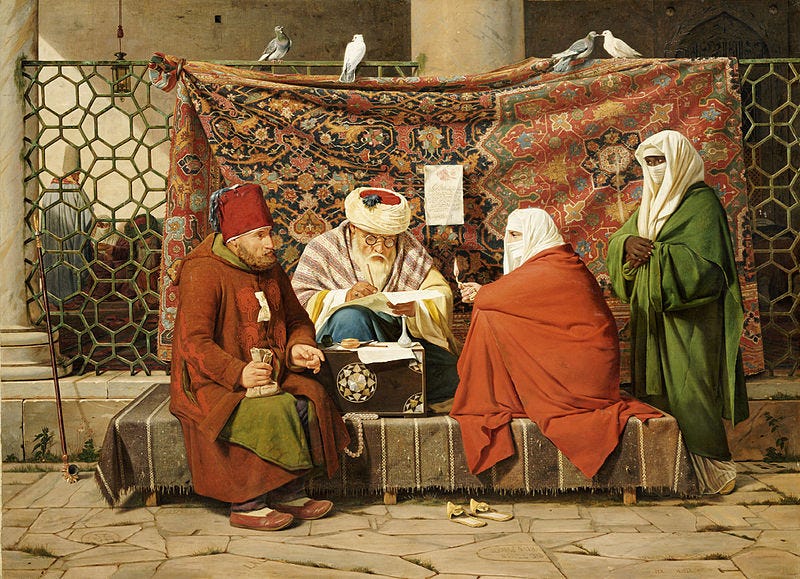
Is sex with slave girls allowed outside of marriage?
However, in Islam, multiple wives are permitted. Moreover, sexual intercourse with those “whom your right hand possesses” or slave girls is acceptable outside of marriage.
Surah 33:50: O Prophet, indeed We have made lawful to you your wives to whom you have given their due compensation and those your right hand possesses from what Allāh has returned to you [of captives] and the daughters of your paternal uncles and the daughters of your paternal aunts and the daughters of your maternal uncles and the daughters of your maternal aunts who emigrated with you and a believing woman if she gives herself to the Prophet [and] if the Prophet wishes to marry her; [this is] only for you, excluding the [other] believers. We certainly know what We have made obligatory upon them concerning their wives and those their right hands possess, [but this is for you] in order that there will be upon you no discomfort [i.e., difficulty]. And ever is Allāh Forgiving and Merciful.
Surah 23:5-7: And they who guard their private parts. Except from their wives or those their right hands possess, for indeed, they will not be blamed - But whoever seeks beyond that, then those are the transgressors.
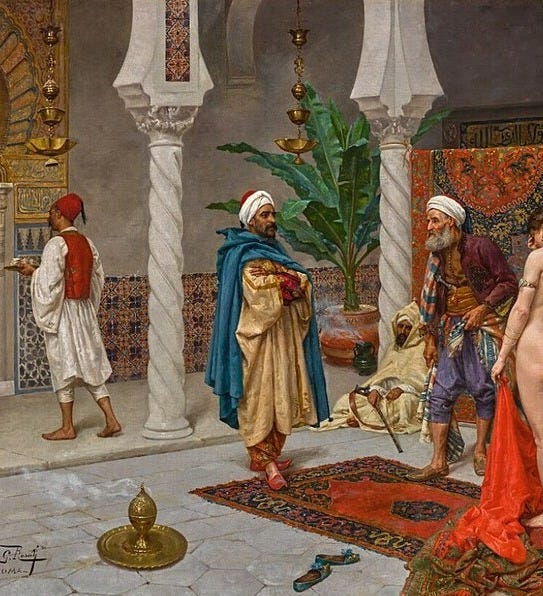
How many wives are allowed in Islam? At least four.
Surah 4:3: And if you fear that you will not deal justly with the orphan girls, then marry those that please you of [other] women, two or three or four. But if you fear that you will not be just, then [marry only] one or those your right hands possess [i.e., slaves]. That is more suitable that you may not incline [to injustice].
Muhammad had at least nine wives
Sahih Bukhari Volume 7, Book 62, Hadith Number 142: The Prophet used to pass by (have sexual relations with) all his wives in one night, and at that time he had nine wives.
In Christianity, no sex is permitted outside of marriage.
Furthermore, in Christianity, a man is expected to love his wife as Christ loved the church.
This involves sacrificially serving and leading her, having implications for sexual behaviour as well. There are differences between sexual expectations in marriage between Islam and Christianity.
Sex in marriage
In a Christian marriage, sex is a means by which you serve your partner. Their needs need to be prioritised above your own.
As Glen Scrivener explains in the Air We Breathe, this passage in effect grabbed Christian men by the testicles going completely against the culture at the time.
1 Corinthians 7:3-5: The husband should give to his wife her conjugal rights, and likewise the wife to her husband. 4 For the wife does not have authority over her own body, but the husband does. Likewise the husband does not have authority over his own body, but the wife does. 5 Do not deprive one another, except perhaps by agreement for a limited time, that you may devote yourselves to prayer; but then come together again, so that Satan may not tempt you because of your lack of self-control.
Ephesians 5:28-29: In the same way husbands should love their wives as their own bodies. He who loves his wife loves himself. 29 For no one ever hated his own flesh, but nourishes and cherishes it, just as Christ does the church,
1 Peter 3:7 teaches if men are not understanding towards their wives their prayers will be hindered.
In the Qur’an, there are some differences to Christianity in this area.
Surah 4:34: “Men are in charge of women by [right of] what Allāh has given one over the other and what they spend [for maintenance] from their wealth. So righteous women are devoutly obedient, guarding in [the husband's] absence what Allāh would have them guard.
But those [wives] from whom you fear arrogance - [first] advise them; [then if they persist], forsake them in bed; and [finally], strike them [lightly]. But if they obey you [once more], seek no means against them. Indeed, Allāh is ever Exalted and Grand.”
Surah 2:223: Your wives are a place of cultivation [i.e., sowing of seed] for you, so come to your place of cultivation however you wish and put forth [righteousness] for yourselves. And fear Allāh and know that you will meet Him. And give good tidings to the believers.
12. Afterlife
Both Christianity and Islam speak of life beyond the grave.
Christians have no ability to escape God’s divine punishment or judgement in and of themselves.
By contrast, redemption is through the blood of Jesus.
Jesus pays the price for our sins to connect us with Himself
Matthew 20:28: Even as the Son of Man came not to be served but to serve, and to give his life as a ransom for many.
Luke 5:32: I have not come to call the righteous but sinners to repentance.
Ephesians 2:8-10: For by grace you have been saved through faith. And this is not your own doing; it is the gift of God, 9 not a result of works, so that no one may boast. 10 For we are his workmanship, created in Christ Jesus for good works, which God prepared beforehand, that we should walk in them.
The key highlight of heaven is being in God’s presence. Jesus’ statement in Matthew 22:30 and Mark 12:25 suggests that in the resurrection, there will be no marriage or sexual relationships between humans, as they will be like the angels in heaven.
Heaven is lit up by God’s presence
Revelation 21:3: And I heard a loud voice from the throne saying, “Behold, the dwelling place of God is with man. He will dwell with them, and they will be his people, and God himself will be with them as their God…And I saw no temple in the city, for its temple is the Lord God the Almighty and the Lamb. 23 And the city has no need of sun or moon to shine on it, for the glory of God gives it light, and its lamp is the Lamb.
Sex and alcohol in heaven?
By contrast, heaven in Islam has a great emphasis on sex and alcohol. The righteous are said to have salvation. This compares to Christianity where there is no one righteous except through Jesus.
Muslims such as Shabir Ally, have stressed that Muslims can have motivation in avoiding succumbing to lust and alcohol by knowing ample sex and alcohol will be available in heaven.
Permanent erections and pleasant vaginas in heaven?
In Sunan Ibn Majah 4337 we read of permanent erections and pleasant vaginas in heaven:
It was narrated from Abu Umamah that the Messenger of Allah said:
“There is no one whom Allah will admit to Paradise but Allah will marry him to seventy-two wives, two from houris and seventy from his inheritance from the people of Hell, all of whom will have desirable front passages (a pleasant vagina, emphasis mine) and he will have a male member that never becomes flaccid (i.e., soft and limp).’”
Big breasts and wine
Surah 78:31-36: Indeed, the righteous will have salvation— Gardens, vineyards, and full-bosomed maidens of equal age, and full cups ˹of pure wine˺, never to hear any idle talk or lying therein— a ˹fitting˺ reward as a generous gift from your Lord. — Dr. Mustafa Khattab, The Clear Quran
Wine is prohibited on this side of heaven
Surah 5:90-91: O you who have believed, indeed, intoxicants, gambling, [sacrificing on] stone alters [to other than Allāh], and divining arrows are but defilement from the work of Satan, so avoid it that you may be successful. Satan only wants to cause between you animosity and hatred through intoxicants and gambling and to avert you from the remembrance of Allāh and from prayer. So will you not desist?
How to escape hell in Christianity
In Christianity, those who trust in Jesus escape hell entirely. For to be absent from the body is to be present with the Lord (2 Cor. 5:8). Jesus being raised from the dead, delivers us from the wrath to come (1 Thess. 1:10).
Does everyone go to hell for a bit first in Islam?
However, in Islam, everyone will first pass over hell.
Surah 19:68-72: So by your Lord, We will surely gather them and the devils; then We will bring them to be present around Hell upon their knees. Then We will surely extract from every sect those of them who were worst against the Most Merciful in insolence. Then, surely it is We who are most knowing of those most worthy of burning therein. And there is none of you except he will come to it. This is upon your Lord an inevitability decreed. Then We will save those who feared Allāh and leave the wrongdoers within it, on their knees.
What happens if you don’t know Jesus?
By contrast, in Christianity, God’s judgement is reserved for those who do not know (know in a relational sense) Jesus.
Matthew 7:21-23: “Not everyone who says to me (Jesus), ‘Lord, Lord,’ will enter the kingdom of heaven, but the one who does the will of my Father who is in heaven. 22 On that day many will say to me, ‘Lord, Lord, did we not prophesy in your name, and cast out demons in your name, and do many mighty works in your name?’ 23 And then will I declare to them, ‘I never knew you; depart from me, you workers of lawlessness.’
13. God sent good news or the Gospel through Jesus- listen to Jesus
The Qur’an emphasises God sent the good news or Gospel (Injeel) through Jesus and the Torah that was sent through Moses. This is something the Bible affirms.
Luke 2:10-11 speaks of the good news of Jesus as Saviour:
And the angel said to them, “Fear not, for behold, I bring you good news of great joy that will be for all the people. 11 For unto you is born this day in the city of David a Savior, who is Christ the Lord.
Note the following passages in the Qur’an:
Surah 3:3: He has sent down upon you, [O Muḥammad], the Book in truth, confirming what was before it. And He revealed the Torah and the Gospel.
Surah 3:48: And He (Allah) will teach him (Jesus) writing and wisdom and the Torah and the Gospel.
Surah 3:65: O People of the Scripture, why do you argue about Abraham while the Torah and the Gospel were not revealed until after him? Then will you not reason?
Surah 5:46: And We sent, following in their footsteps, Jesus, the son of Mary, confirming that which came before him in the Torah; and We gave him the Gospel, in which was guidance and light and confirming that which preceded it of the Torah as guidance and instruction for the righteous.
Judge by what is in the Gospel
Surah 5:47: And let the People of the Gospel judge by what Allāh has revealed therein. And whoever does not judge by what Allāh has revealed - then it is those who are the defiantly disobedient.
Surah 5:66: And if only they had upheld [the law of] the Torah, the Gospel, and what has been revealed to them from their Lord [i.e., the Qur’ān], they would have consumed [provision] from above them and from beneath their feet. Among them are a moderate [i.e., acceptable] community, but many of them - evil is that which they do.
Surah 5:68: Say, "O People of the Scripture, you are [standing] on nothing until you uphold [the law of] the Torah, the Gospel, and what has been revealed to you from your Lord [i.e., the Qur’ān]." And that which has been revealed to you from your Lord will surely increase many of them in transgression and disbelief. So do not grieve over the disbelieving people.
Surah 5:110: [The Day] when Allāh will say, "O Jesus, Son of Mary, remember My favor upon you and upon your mother when I supported you with the Pure Spirit [i.e., the angel Gabriel] and you spoke to the people in the cradle and in maturity; and [remember] when I taught you writing and wisdom and the Torah and the Gospel; and when you designed from clay [what was] like the form of a bird with My permission, then you breathed into it, and it became a bird with My permission; and you healed the blind [from birth] and the leper with My permission; and when you brought forth the dead with My permission; and when I restrained the Children of Israel from [killing] you when you came to them with clear proofs and those who disbelieved among them said, "This is not but obvious magic."
Surah 7:157: Those who follow the Messenger, the unlettered prophet, whom they find written [i.e., described] in what they have of the Torah and the Gospel, who enjoins upon them what is right and prohibits them from what is wrong and makes lawful for them what is good and forbids them from what is evil and relieves them of their burden and the shackles which were upon them.2 So they who have believed in him, honored him, supported him and followed the light which was sent down with him - it is those who will be the successful.
Surah 9:111: Indeed, Allāh has purchased from the believers their lives and their properties [in exchange] for that they will have Paradise. They fight in the cause of Allāh, so they kill and are killed. [It is] a true promise [binding] upon Him in the Torah and the Gospel and the Qur’ān. And who is truer to his covenant than Allāh? So rejoice in your transaction which you have contracted. And it is that which is the great attainment.
The Gospel helps believers grow strong
Surah 48:29: Muḥammad is the Messenger of Allāh; and those with him are forceful against the disbelievers, merciful among themselves. You see them bowing and prostrating [in prayer], seeking bounty from Allāh and [His] pleasure. Their sign is in their faces from the effect of prostration [i.e., prayer]. That is their description in the Torah. And their description in the Gospel is as a plant which produces its offshoots and strengthens them so they grow firm and stand upon their stalks, delighting the sowers - so that He [i.e., Allāh] may enrage by them the disbelievers. Allāh has promised those who believe and do righteous deeds among them forgiveness and a great reward.
Surah 57:27: Then We sent following their footsteps [i.e., traditions] Our messengers and followed [them] with Jesus, the son of Mary, and gave him the Gospel. And We placed in the hearts of those who followed him compassion and mercy and monasticism, which they innovated; We did not prescribe it for them except [that they did so] seeking the approval of Allāh. But they did not observe it with due observance. So We gave the ones who believed among them their reward, but many of them are defiantly disobedient.
14. The need for God’s mercy and forgiveness
The Bible is clear everyone will die for their own sin (Jer. 31:30).
Romans 6:23: For the wages of sin is death, but the free gift of God is eternal life in Christ Jesus our Lord.
Jesus taught evil intentions come out of the human heart.
Matthew 15:18-19: But what comes out of the mouth proceeds from the heart, and this defiles a person. 19 For out of the heart come evil thoughts, murder, adultery, sexual immorality, theft, false witness, slander.
Assurance of salvation in Perfect Jesus
As such, we are reliant on Jesus to save us through an act of mercy when we put our trust in Him.
Titus 3:4-7: But when the goodness and loving kindness of God our Savior appeared, 5 he saved us, not because of works done by us in righteousness, but according to his own mercy, by the washing of regeneration and renewal of the Holy Spirit, 6 whom he poured out on us richly through Jesus Christ our Savior, 7 so that being justified by his grace we might become heirs according to the hope of eternal life.
The need for mercy in Islam
Hadith literature also teaches entrance into paradise is dependant on Allah’s mercy.
Sahih Bukhari Volume 6, Book 60, Hadith Number 373: Narrated By Abu Huraira : The Prophet said, “Paradise and the Fire (Hell) argued, and the Fire (Hell) said, “I have been given the privilege of receiving the arrogant and the tyrants.’ Paradise said, ‘What is the matter with me? Why do only the weak and the humble among the people enter me?’ On that, Allah said to Paradise. ‘You are My Mercy which I bestow on whoever I wish of my servants.’ Then Allah said to the (Hell) Fire, ‘You are my (means of) punishment by which I punish whoever I wish of my slaves. And each of you will have its fill.’ As for the Fire (Hell), it will not be filled till Allah puts His Foot over it whereupon it will say, ‘Qati! Qati!’ At that time it will be filled, and its different parts will come closer to each other; and Allah will not wrong any of His created beings. As regards Paradise, Allah will create a new creation to fill it with.”
Being good or bad doesn’t necessarily determine your eternal destiny in Islam
Sahih al-Bukhari 4202: Allah's Messenger then said, "A man may do what seem to the people as the deeds of the dwellers of Paradise but he is from the dwellers of the Hell-Fire and another may do what seem to the people as the deeds of the dwellers of the Hell- Fire, but he is from the dwellers of Paradise."
A single good act of yourself to get you into heaven?
However, there were times, Muhammad, indicated a single act could get you into paradise.
In Bukhari 3:894:
Allah's Apostle said, "Allah has ninety-nine names, i.e. one-hundred minus one, and whoever knows them will go to Paradise."
A constant state of uncertainty?
Dr. Power visually demonstrates what the flux between the promise of forgiveness and reward and the threat of condemnation could look like in the life of a Muslim.
Dr. Bernie Power: Engaging Islamic Traditions p.92
Muhammad needed to seek refuge in Allah to try and avoid hell
Sahih Muslim 589: The Apostle of Allah used to supplicate in prayer thus:" O Allah! I seek refuge with Thee from the torment of the grave, and I seek refuge with Thee from the trial of the Masih al-Dajjal (Antichrist) and I seek refuge with Thee from the trial of life and death. O Allah! I seek refuge with Thee from sin and debt."
Muhammad’s heart needed cleansing indicating he had imperfections
Bukhari 1:345: Allah's Apostle said, "While I was at Mecca the roof of my house was opened and Gabriel descended, opened my chest, and washed it with Zam-zam water. Then he brought a golden tray full of wisdom and faith and having poured its contents into my chest, he closed it.
Muhammad asked for forgiveness over 70 times per day
In Sahih al-Bukahri 6307, Muhammad says: By Allah! I ask for forgiveness from Allah and turn to Him in repentance more than seventy times a day."
At times, Muhammad wouldn’t know where he would end up when he died
Muhammad says in Sahih al-Bukhari 3929 regarding the state of the deceased : By Allah, though I am the Apostle of Allah, yet I do not know what Allah will do to me.
Muhammad didn’t know what Allah would do with him or his followers
Surah 46:9 says, "I am not something original among the messengers, nor do I know what will be done with me or with you. I only follow that which is revealed to me, and I am not but a clear warner."
Muhammad could not save his followers from Allah’s punishment
Note the following in Bukhari 4:16:
Narrated Abu Huraira: When Allah revealed the Verse: "Warn your nearest kinsmen," Allah's Apostle got up and said, "O people of Quraish (or said similar words)! Buy (i.e. save) yourselves (from the Hellfire) as I cannot save you from Allah's Punishment; O Bani Abd Manaf! I cannot save you from Allah's Punishment, O Safiya, the Aunt of Allah's Apostle! I cannot save you from Allah's Punishment; O Fatima bint Muhammad!
Ask me anything from my wealth, but I cannot save you from Allah's Punishment."
When Muhammad got close to hell
Dr. Power explains in Engaging Islamic Traditions p.98:
Due to performing ruqya (reciting Qur’anic verses over the sick), B.7:640, 642. Muhammad had apparently disqualified himself from being among the 70,000 Muslims guaranteed Paradise “who will neither have any reckoning of their accounts nor will receive any punishment”. B.8:549, 479; 7:648; 8:549, 550. After a vision, he noted: “Hell became so near to me that I said, ‘O my Lord, will I be among those people?’” B.1:712; 3:552.
15. God is One and also Other to humans
In the Bible God is One (Deut. 6:4). We have made a case elsewhere for the Trinity- One in Being, three in Person. Links below:
God is also beyond us. Not able to be fully comprehended.
Isaiah 55:8-9: For my thoughts are not your thoughts,
neither are your ways my ways, declares the Lord.
9 For as the heavens are higher than the earth,
so are my ways higher than your ways
and my thoughts than your thoughts.
Romans 11:33: Oh, the depth of the riches and wisdom and knowledge of God! How unsearchable are his judgments and how inscrutable his ways!
Could you be committing shirk in trying to compare the Trinity to a creation?
As such, the Trinity cannot be fully comprehended. Just as Muslims warn of the dangers of shirk (trying to compare God to something in creation), it is dangerous to claim because in our realm of existence one being is not more than one person, in another dimension of realm, God could not be.
Analogy of the Father
However, in Christianity, God can still fit the analogy of a Father. In Islam, this is not permitted.
Otherness of Allah
Nonetheless, the otherness of Allah is stressed in the Qu’ran in Surah 112:1-4:
Say, "He is Allāh, [who is] One, Allāh, the Eternal Refuge. He neither begets nor is born, Nor is there to Him any equivalent."
Surah 16:74 warns of trying to make analogies or comparisons to Allah: So do not assert similarities to Allāh. Indeed, Allāh knows and you do not know.
Tawhid
Could the otherness of Allah be why it can be difficult to grasp the concept of Tawhid whereby Allah is an absolute singularity by necessity yet also has 99 uncaused attributes that exist by necessity?
16. God is in control
While there may be some variation over the extent to which God causes events versus allowing them to happen in His plan between Islam and Christianity, it is clear in both the Bible and the Qur’an that God is in control of worldly events.
Psalm 115:3: Our God is in the heavens; he does all that he pleases.
Romans 11:36: For from him and through him and to him are all things. To him be glory forever. Amen.
In the Qur’an we see the following:
Surah 2:115: And Allah is the One who has dominion over all things.
Surah 6:12:“He is the One who controls the heavens and the earth. He gives life and causes death, and He is the One who is all-powerful.”
Surah 9:51: “Whatever Allah intends, He does, and He is the One who knows the future.”
17. Some similar moral standards
There is some overlap between morals in Christianity and Islam. It needs to be stressed, however, in Christianity, we cannot be saved by our good deeds for we are all fallen before God.
Sahih Bukhari Volume 1, Book 2, Hadith Number 17 spells out moral requirements from Muhammad similar to the 10 Commandments in Exodus 20: Narrated By ‘Ubada bin As-Samit : Who took part in the battle of Badr and was a Naqib (a person heading a group of six persons), on the night of Al-‘Aqaba pledge: Allah’s Apostle said while a group of his companions were around him, “Swear allegiance to me for:
1. Not to join anything in worship along with Allah.
2. Not to steal.
3. Not to commit illegal sexual intercourse.
4. Not to kill your children.
5. Not to accuse an innocent person (to spread such an accusation among people).
6. Not to be disobedient (when ordered) to do good deed.”
Sahih Bukhari Volume 1, Book 11, Hadith Number 629:
Narrated By Abu Huraira : The Prophet said, “Allah will give shade, to seven, on the Day when there will be no shade but His. (These seven persons are) a just ruler, a youth who has been brought up in the worship of Allah (i.e. worships Allah sincerely from childhood), a man whose heart is attached to the mosques (i.e. to pray the compulsory prayers in the mosque in congregation), two persons who love each other only for Allah’s sake and they meet and part in Allah’s cause only, a man who refuses the call of a charming woman of noble birth for illicit intercourse with her and says: I am afraid of Allah, a man who gives charitable gifts so secretly that his left hand does not know what his right hand has given (i.e. nobody knows how much he has given in charity), and a person who remembers Allah in seclusion and his eyes are then flooded with tears.”
Good character and good manners
Sahih al-Bukhari 3759: Allah's Messenger neither talked in an insulting manner nor did he ever speak evil intentionally. He used to say, "The most beloved to me amongst you is the one who has the best character and manners."
Works of Spirit v works of flesh
The Bible distinguishes fruits of the Spirit from works of the flesh:
Galatians 5:17-23: For the desires of the flesh are against the Spirit, and the desires of the Spirit are against the flesh, for these are opposed to each other, to keep you from doing the things you want to do. 18 But if you are led by the Spirit, you are not under the law. 19 Now the works of the flesh are evident: sexual immorality, impurity, sensuality, 20 idolatry, sorcery, enmity, strife, jealousy, fits of anger, rivalries, dissensions, divisions, 21 envy,[d] drunkenness, orgies, and things like these. I warn you, as I warned you before, that those who do[e] such things will not inherit the kingdom of God. 22 But the fruit of the Spirit is love, joy, peace, patience, kindness, goodness, faithfulness, 23 gentleness, self-control; against such things there is no law.
18. Your sins can be transferred to another
In Christianity, we are all deserving of God’s judgement. In Jesus' death on the cross Jesus took on the consequence for our sin. Truly human so he could properly take our place and truly divine so He wouldn’t fail, Jesus, as the Son of Man had the sins of those who believe in Him transferred to Him.
Matthew 20:28: Even as the Son of Man came not to be served but to serve, and to give his life as a ransom for many.
John 10:15: I (Jesus) lay down my life for the sheep.
John 15:13: Greater love has no one than this, that someone lay down his life for his friends.
Romans 6:23: For the wages of sin is death, but the free gift of God is eternal life in Christ Jesus our Lord.
Granted, this concept is not spelled out in Islam and Islam emphasises the actions of an individual, there are some similarities to the Christian view of atonement in Hadith literature.
Does a Christian pay the price for a Muslim’s sins in hell?
Sahih Muslim Book - 49, Hadith - 7011 reads:
It was narrated that Abu Musa said: "The Messenger of Allah (s.a.w) said: 'When the Day of Resurrection comes, Allah, Glorified and Exalted is He, will give every Muslim a Jew or a Christian, and He will say: "This is your ransom from the Fire."
In other words, a Jew or a Christian is a Muslim’s ransom from hell.
Sahih Muslim Book - 49, Hadith - 7012 reads: "No Muslim man dies but Allah causes a Jew or a Christian to enter the Fire in his stead."
Sahih Muslim Book - 49, Hadith - 7014: It was narrated from Abu Burdah from his father that the Prophet (s.a.w) said: "On the Day of Resurrection some Muslim people will come with sins like mountains, but Allah will forgive them and will place them (the sins) on the Jews and the Christians."
110 Ahadith Qudsi no 8 reads:
Allah's Messenger (PBUH) said: On the Day of Resurrection, my Ummah (nation) will be gathered into three groups. one sort will enter Paradise without rendering an account (of their deeds). Another sort will be reckoned an easy account and admitted into Paradise. Yet another sort will come bearing on their backs heaps of sins like great mountains. Allah will ask the angels though He knows best about them: Who are these people? They will reply: They are humble slaves of yours. He will say: Unload the sins from them and put the same over the Jews and Christians; then let the humble slaves get into Paradise by virtue of My Mercy.
19. Humans must seek God
Both Christianity and Islam encourage us to seek God.
Note the following two passages from the Qur’an:
Surah 4:1: O humanity! Be mindful of your Lord Who created you from a single soul, and from it He created its mate, and through both He spread countless men and women. And be mindful of Allah—in Whose Name you appeal to one another—and ˹honour˺ family ties. Surely Allah is ever Watchful over you. — Dr. Mustafa Khattab, The Clear Quran
Surah 16:98: So when you recite the Qur’ān, [first] seek refuge in Allāh from Satan, the expelled [from His mercy].
We find the following in the Hadith literature in Sahih al-Bukhari 7405:
The Prophet said, "Allah says: 'I am just as My slave thinks I am, (i.e. I am able to do for him what he thinks I can do for him) and I am with him if He remembers Me. If he remembers Me in himself, I too, remember him in Myself; and if he remembers Me in a group of people, I remember him in a group that is better than they; and if he comes one span nearer to Me, I go one cubit nearer to him; and if he comes one cubit nearer to Me, I go a distance of two outstretched arms nearer to him; and if he comes to Me walking, I go to him running.' "
Seeking God in Christianity
In Christianity, we learn the importance of seeking God but also that God sought us by sending Jesus even while we were not seeking Him.
Jeremiah 29:13: You will seek me and find me, when you seek me with all your heart.
Matthew 7:7: Ask, and it will be given to you; seek, and you will find; knock, and it will be opened to you.
Luke 15:20: And he arose and came to his father. But while he was still a long way off, his father saw him and felt compassion, and ran and embraced him and kissed him.
When God seeks us
Luke 15:8-10: “Or what woman, having ten silver coins, if she loses one coin, does not light a lamp and sweep the house and seek diligently until she finds it? 9 And when she has found it, she calls together her friends and neighbors, saying, ‘Rejoice with me, for I have found the coin that I had lost.’ 10 Just so, I (Jesus) tell you, there is joy before the angels of God over one sinner who repents.”
Luke 19:10: For the Son of Man (Jesus) came to seek and to save the lost.
20. Satan and dark spiritual forces
Christianity and Islam both teach there are dark spiritual forces in the world.
Satan and demons. In the Qur’an demons are referred to as Jinn.
In Matthew 4 and Luke 4, Satan tries to tempt Jesus.
Ephesians 6:11-12: Put on the whole armor of God, that you may be able to stand against the schemes of the devil. 12 For we do not wrestle against flesh and blood, but against the rulers, against the authorities, against the cosmic powers over this present darkness, against the spiritual forces of evil in the heavenly places.
It is through Jesus we can have ultimate victory over dark forces though they will continue to war against us until the second coming of Jesus.
Jesus conquers dark forces
Colossians 2:13-15: And you, who were dead in your trespasses and the uncircumcision of your flesh, God made alive together with him, having forgiven us all our trespasses, 14 by canceling the record of debt that stood against us with its legal demands. This he set aside, nailing it to the cross. 15 He disarmed the rulers and authorities and put them to open shame, by triumphing over them in him.
Satan in Islam
In the Qur’an. Surah 18:51 suggests that Satan (Iblis) was one of the Jinn and disobeyed the command of his Lord, refusing to submit to Adam.
In the Hadith, Satan is also presented as engaging in activities such as corrupting babies, sleeping in people’s noses and urinating in their ears.
According to Sahih Bukari Volume 4, Book 54, Hadith 506, “When any human being is born, Satan touches him at both sides of the body with his two fingers, except Jesus, the son of Mary, whom Satan tried to touch but failed, for he touched the placenta-cover instead.”
Narrated Abu Huraira:
The Prophet said, "If anyone of you rouses from sleep and performs the ablution, he should wash his nose by putting water in it and then blowing it out thrice, because Satan has stayed in the upper part of his nose all the night."
Narrated `Abdullah:
It was mentioned before the Prophet that there was a man who slept the night till morning (after sunrise). The Prophet said, "He is a man in whose ears (or ear) Satan had urinated."
Muhammad could not overcome dark forces
Dr. Power explains in Engaging Islamic Traditions p.119:
“The Hadith identify a conflict between humanity and the spiritual powers. Although Muhammad one time claimed to have choked Satan, B.2:301 he lived in constant fear of the devil B.4:590 and was bewitched with a spell B.4:490 that lasted for a year. Ibn Ishaq Sirat, 240 fn 1. “The Evil Eye is a fact,” he declared. B.7:827, 828.
This was a sphere in which Muhammad could not gain victory.”
Conclusion:
Where does all this leave you? What else would you like to explore from these two religions?
Your investigation into these two religions could be one of the most important journeys of your life.
In him we have redemption through his blood, the forgiveness of our trespasses, according to the riches of his grace. - Ephesians 1:7
If you want to learn more on these topics you might want to start with some of our articles below:
Find us on Medium.com
Or X
https://twitter.com/StreetTheologn




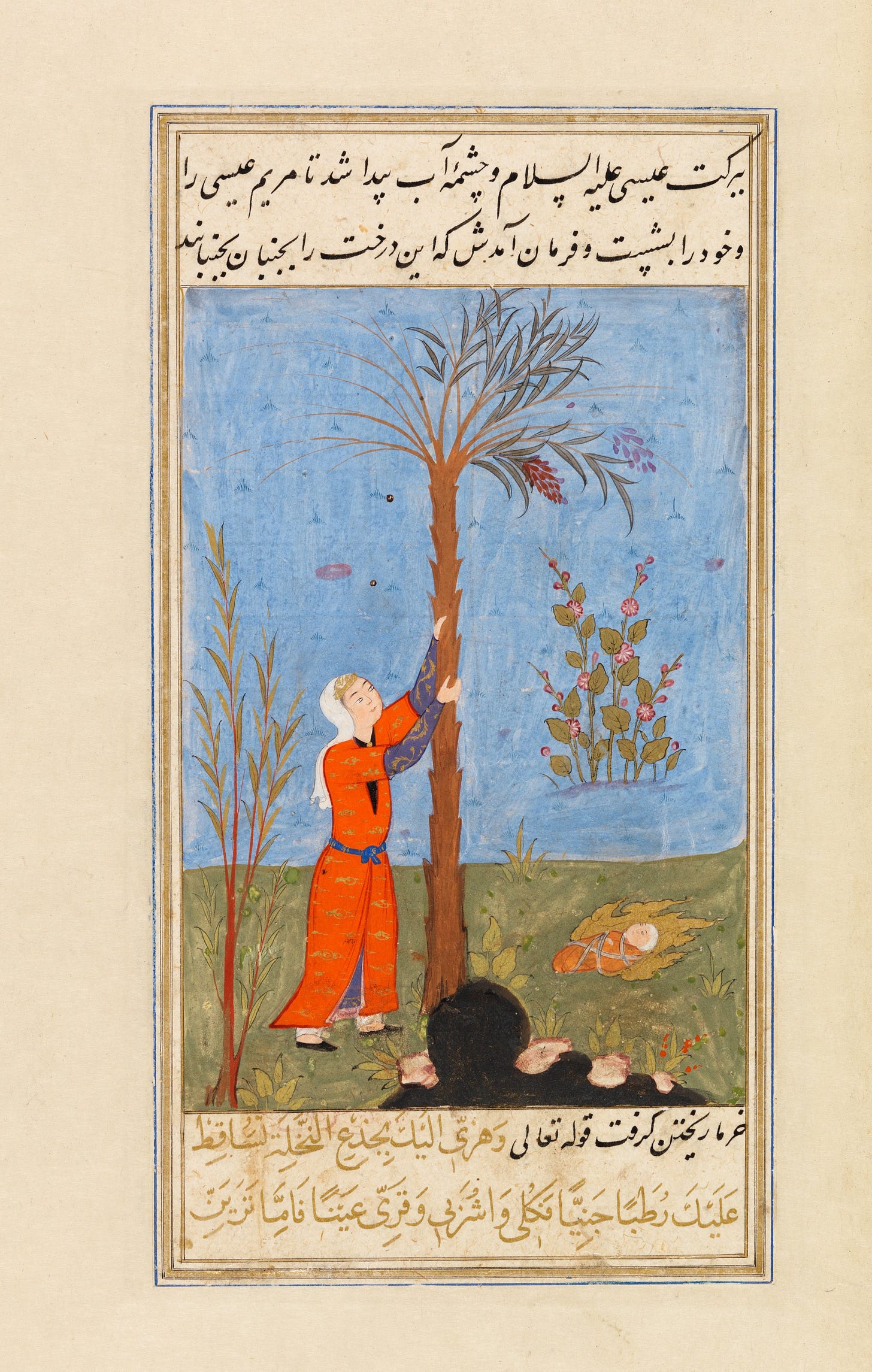


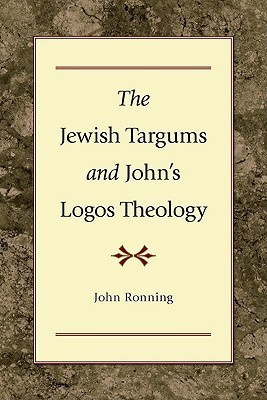


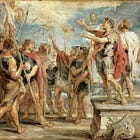
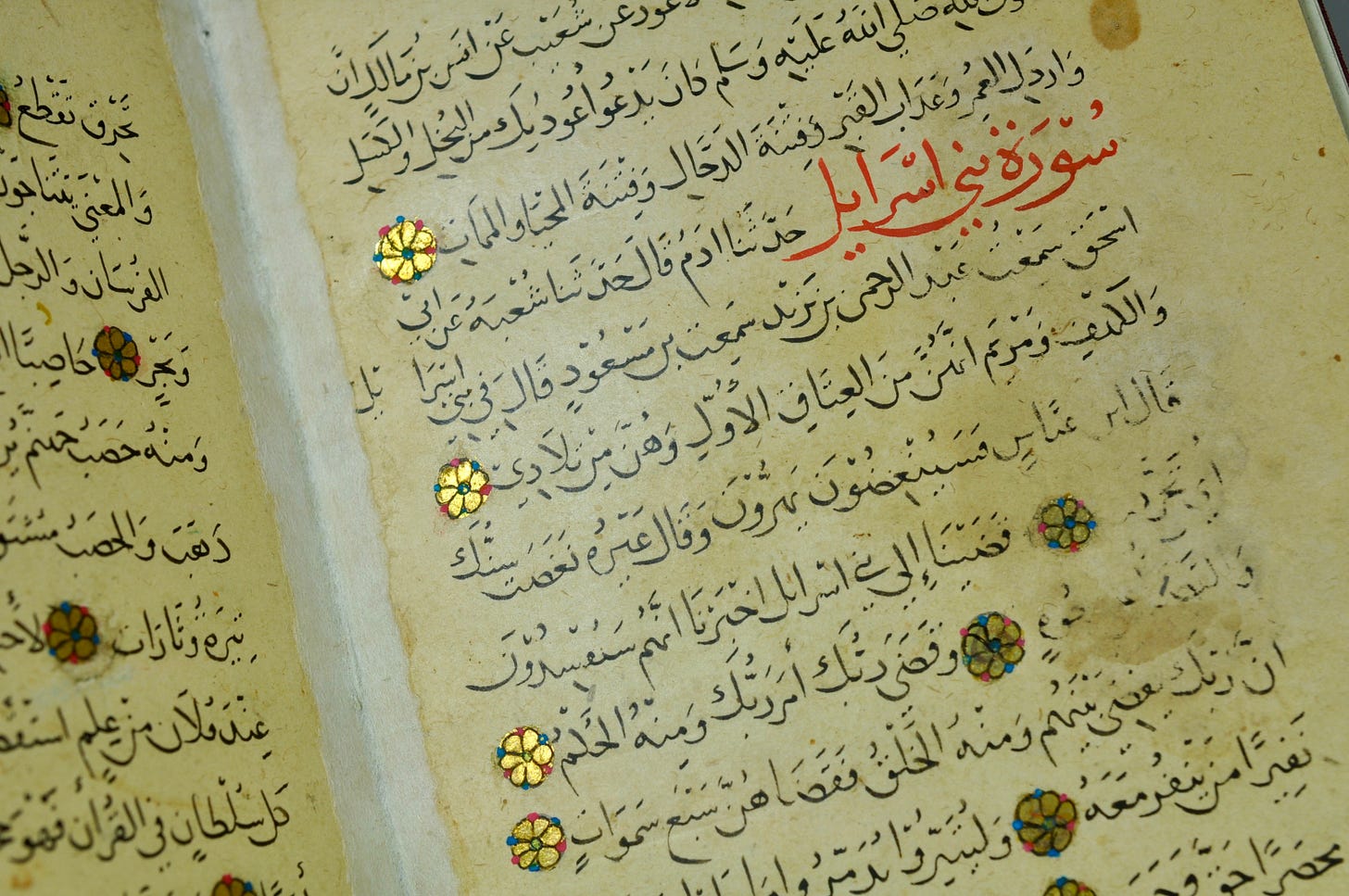





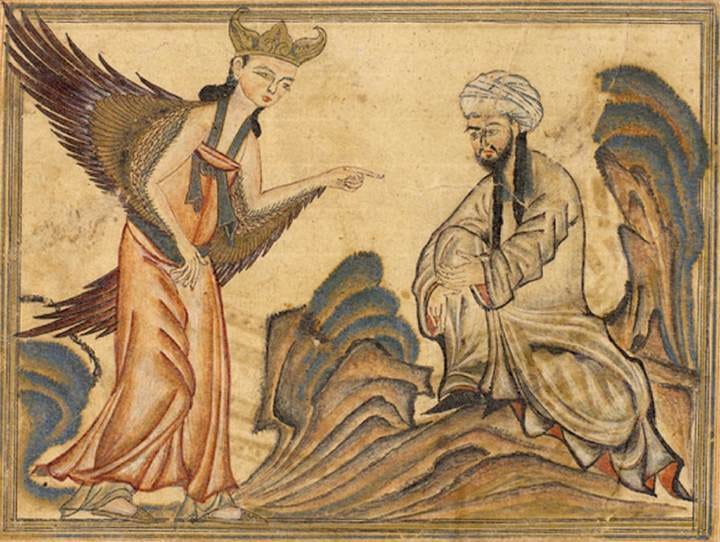




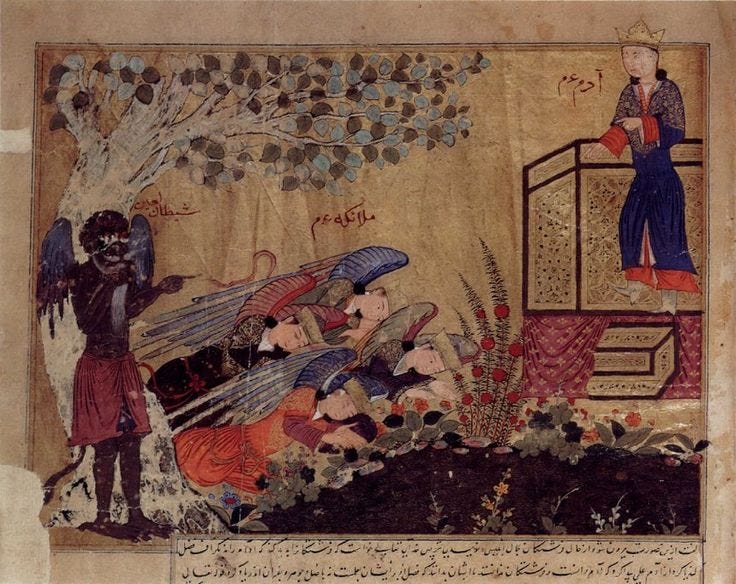

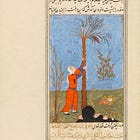
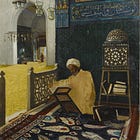


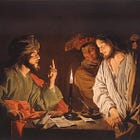

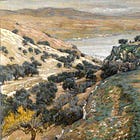

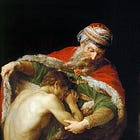


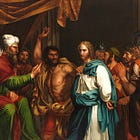


Once again thank you for all of your hard work and for so much valuable information.